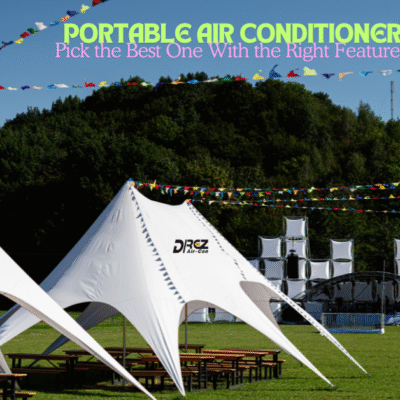Steel is the backbone of modern construction and infrastructure projects. From high-rise buildings to bridges, pipelines, and industrial plants, steel provides strength, flexibility, and durability. However, not all steel is made equal. The difference between high-quality, certified steel and substandard materials can mean the difference between a safe, long-lasting structure and one prone to costly risks.
This is why certifications are critical when choosing steel manufacturers in Melbourne. Certifications serve as proof that manufacturers meet recognized quality, safety, and environmental standards. For builders, contractors, and project managers, understanding which certifications to look for helps ensure compliance with Australian laws, enhances safety, and guarantees the best return on investment.
In this guide, we will explore why certifications matter, which ones are essential for Melbourne steel manufacturers, and how to verify them before making a purchasing decision.
Why Certifications Matter in Steel Manufacturing
🔹 The Role of Certifications in Ensuring Quality
Certifications act as a stamp of approval that steel products are manufactured to consistent quality standards. They show that the manufacturer follows strict processes, from sourcing raw materials to production and testing.
-
Reliability: Certified steel ensures uniform strength, toughness, and performance.
-
Compliance: Projects that use certified steel meet government and industry regulations.
-
Safety: Certified materials reduce the risk of structural failures.
In industries where safety and precision are non-negotiable, certifications are not just paperwork—they’re assurances of trust.
🔹 Risks of Working with Non-Certified Manufacturers
Partnering with uncertified steel suppliers exposes your project to multiple risks:
-
Safety Hazards: Inferior steel may crack, warp, or fail under stress.
-
Legal Issues: Using non-compliant steel can lead to project shutdowns or penalties.
-
Financial Loss: Replacing poor-quality materials leads to cost overruns.
-
Reputation Damage: Builders risk losing client trust if projects fail quality checks.
Clearly, certifications are essential safeguards for anyone working in construction, engineering, or industrial development.
Key Certifications Steel Manufacturers in Melbourne Should Have
Not all certifications are equal. Below are the most important ones you should check for when choosing a steel manufacturer in Melbourne:
1. ISO Certifications
The International Organization for Standardization (ISO) is a globally recognized authority. ISO certifications demonstrate a manufacturer’s commitment to excellence:
-
ISO 9001 (Quality Management Systems): Ensures consistent production quality through controlled processes and customer satisfaction measures.
-
ISO 14001 (Environmental Management): Reflects eco-friendly practices and sustainable manufacturing.
-
ISO 45001 (Occupational Health & Safety): Protects employees and ensures compliance with safety regulations.
A manufacturer with these ISO certifications is generally reliable, responsible, and professional.
2. Australian Standards (AS/NZS)
Steel used in Melbourne must comply with Australian and New Zealand Standards (AS/NZS). These ensure structural reliability in local conditions:
-
AS/NZS 3678: Structural steel – hot-rolled plates and floorplates.
-
AS/NZS 3679: Structural steel – hot-rolled bars and sections.
-
AS/NZS 1163: Cold-formed structural steel hollow sections.
These standards are particularly vital for large-scale construction projects like commercial buildings, bridges, and infrastructure. Choosing steel without AS/NZS certification could result in project non-compliance.
3. ACRS Certification
The Australasian Certification Authority for Reinforcing and Structural Steels (ACRS) provides independent certification for reinforcing and structural steels.
Why it matters:
-
It guarantees steel quality through rigorous testing.
-
It ensures compliance with Australian Standards.
-
It reassures builders, engineers, and regulators that steel is trustworthy.
ACRS-certified steel is widely accepted across the construction industry in Melbourne.
4. Environmental and Sustainability Certifications
With sustainability becoming a priority, eco-friendly certifications are increasingly important:
-
Green Building Council of Australia (GBCA) Accreditation: Supports green star-rated projects.
-
ResponsibleSteel™ Certification: Promotes ethical sourcing and reduced environmental impact.
These certifications are critical for businesses committed to sustainable construction and corporate responsibility.
5. Industry-Specific Certifications
Some projects demand additional certifications, including:
-
AS/NZS 1554 (Welding Certification): Ensures structural welding complies with safety and durability requirements.
-
Standards Australia QA Approvals: Recognized assurance of manufacturing processes.
Such certifications are crucial for specialized projects like pipelines, offshore structures, or heavy industrial applications.
How to Verify a Steel Manufacturer’s Certifications
Having certifications on paper is not enough. Here’s how you can verify them:
🔹 Step-by-Step Guide
-
Request Documents: Ask manufacturers for copies of their certificates.
-
Check Databases: Verify with ACRS, ISO registries, or Standards Australia.
-
Look for Expiry Dates: Ensure certifications are current and renewed regularly.
-
Cross-Check Audits: Reputable companies often publish audit results in annual reports.
🔹 Red Flags to Watch Out For
-
Certificates that are outdated or incomplete.
-
Manufacturers unwilling to share documentation.
-
Lack of transparency about testing processes.
By doing your due diligence, you can avoid costly mistakes.
Benefits of Choosing Certified Steel Manufacturers in Melbourne
-
Higher Quality Products: Consistent strength, durability, and performance.
-
Compliance Assurance: Meets all regulatory and industry requirements.
-
Improved Safety: Minimizes risks of structural failure.
-
Sustainability: Supports eco-friendly construction practices.
-
Cost Efficiency: Reduces chances of rework, replacements, or project delays.
Investing in certified steel suppliers is an investment in project success.
Tips for Selecting the Right Steel Manufacturer
-
Match Certifications with Project Needs: Large infrastructure projects may need multiple certifications.
-
Compare Suppliers: Look at their track record, case studies, and testimonials.
-
Evaluate Local vs. Imported Steel: Local steel often provides better compliance with AS/NZS standards.
-
Check After-Sales Support: A good supplier will provide ongoing technical assistance.
By combining certifications with practical considerations, you’ll find the best supplier for your project.
Conclusion
Certifications are more than formalities—they are your guarantee of quality, compliance, and safety. For Melbourne-based projects, the most crucial certifications include ISO, AS/NZS standards, and ACRS accreditation. Environmental certifications like ResponsibleSteel™ also help companies align with sustainability goals.
Whether you’re a contractor, architect, or project manager, partnering with certified steel manufacturers ensures stronger, safer, and more reliable outcomes. The next time you source steel, remember: certified is always better.
FAQs
1. What is ACRS certification, and why is it important?
ACRS is an independent authority that certifies reinforcing and structural steel. It ensures compliance with Australian Standards and provides confidence to builders and regulators.
2. Are Australian Standards (AS/NZS) mandatory for steel manufacturers in Melbourne?
Yes. For construction and infrastructure projects, AS/NZS compliance is required to meet legal and safety requirements.
3. How do I verify if a steel manufacturer’s ISO certification is genuine?
Check the certification number against the official ISO registry or request verification from the issuing accreditation body.
4. What happens if I use steel from a non-certified manufacturer?
You risk structural failures, legal penalties, project shutdowns, and significant financial losses.
5. Is ResponsibleSteel™ certification common among Melbourne steel suppliers?
It’s growing in popularity as more companies commit to sustainability, but not all suppliers have it yet.
6. Which certifications are most important for construction projects?
ISO 9001, AS/NZS standards, and ACRS certification are the most critical for ensuring safety and compliance.
7. Do certifications affect the cost of steel products in Melbourne?
Certified steel may cost slightly more upfront, but it saves money in the long term by reducing risks and ensuring compliance.
8. How often should steel manufacturers renew their certifications?
Most certifications, such as ISO and ACRS, must be renewed annually or every few years, depending on the body’s requirements.



